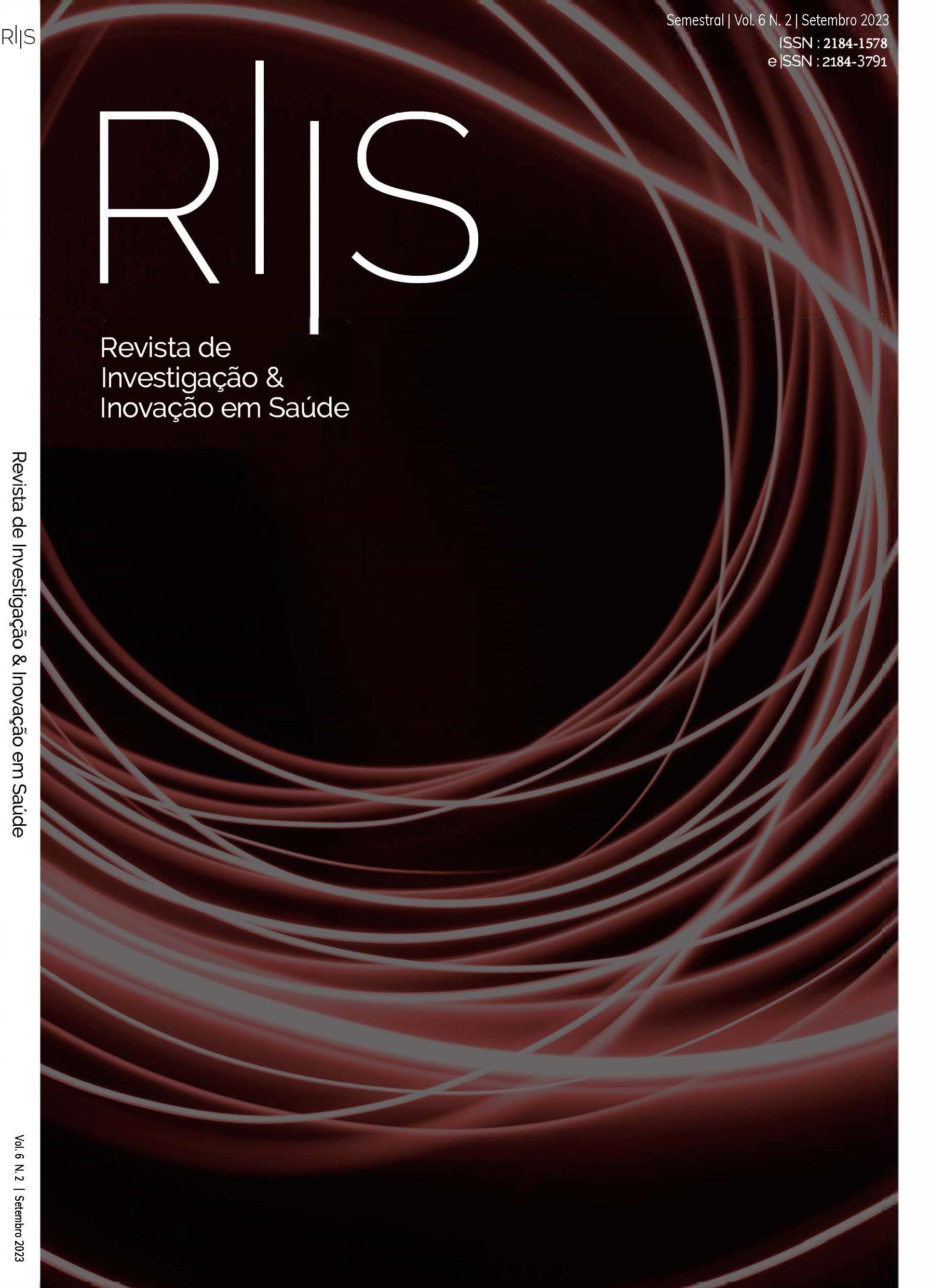Efficacy of the pre-surgical chlorhexidine bath: integrative review
DOI:
https://doi.org/10.37914/riis.v7i3.391Keywords:
Baths, Chlorhexidine, Surgical Wound Infection, Preoperative CareAbstract
Background: surgical site infection appears in the surgical site or in the periphery, during the first 30 days after surgery. The prevention of this infection requires an adequate preoperative preparation. Objetive: evaluate the efficacy of the pre-surgical bath with chlorhexidine in the pre-surgical preparation of the skin when compared with the pre-surgical bath with placebo. Methods: this review was based on the question "What is the effectiveness of the pre-surgical bath with chlorhexidine versus pre-surgical bath with placebo in the pre-surgical preparation of the skin for the prevention of surgical site infection?”. Inclusion and exclusion criteria, descriptors, boolean operators were defined and the search was performed in MEDLINE and CINAHL databases. Nine articles were included in the review. Results: the pre-surgical bath with chlorhexidine for pre-surgical skin preparation alone is not significantly more effective when compared to the pre-surgical bath with placebo. Its effectiveness can be influenced by multiple factors that should be considered in the development of the surgical site infection. Conclusion: the pre-surgical bath with chlorhexidine should not be an isolated intervention in the prevention of surgical site infection but should be combined with other interventions as recommended in the current guidelines.
References
Antimicrobial Resistance and Healthcare Associated Infection Scotland (2018). What are the key infection prevention and control recommendations to inform a surgical site infection (SSI) prevention quality improvement tool?. https://www.nss.nhs.scot/media/2208/surgical-site-infection-ssi-prevention-quality-improvement-tool.pdf
Ayliffe, G. A., Noy, M. F., Babb, J. R., Davies, J. G., & Jackson, J. (1983). A comparison of pre-operative bathing with chlorhexidine-detergent and non-medicated soap in the prevention of wound infection. The Journal of Hospital Infection, 4(3), 237–244. https://doi.org/10.1016/0195-6701(83)90024-5
Borchardt, R., & Tzizik, D. (2018). Update on surgical site infections: The new CDC guidelines. Journal of the American Academy of Physician Assistants, 31(4), 52–54. https://doi.org/10.1097/01.JAA.0000531052.82007.42
Câmara, M., Felix, C., & Corgozinho, M. (2022). Enfermagem no contexto da infecção da ferida cirúrgica: revisão integrativa. Health Residencies Journal - HRJ, 3(14), 941–960. https://doi.org/10.51723/hrj.v3i14.352
Chlebicki, M., Safdar, N., O’Horo, J., & Maki, D. (2013). Preoperative chlorhexidine shower or bath for prevention of surgical site infection: A meta-analysis. American Journal of Infection Control, 41, 167–173. https://doi.org/10.1016/j.ajic.2012.02.014
Direção-Geral da Saúde. (2022). Norma Clínica nº 020/2015 de 15/12/2015 atualizada a 17/11/2022. "Feixe de intervenções” para a prevenção de infeção do local cirúrgico. https://normas.dgs.min-saude.pt/wp-content/uploads/2015/12/norma_020_2015_atualizada_17_11_2022_prev_inf_local_cirurgico.pdf
Franco, L., Cota, G., Pinto, T., & Ercole, F. (2016). Preoperative bathing of the surgical site with chlorhexidine for infection prevention: Systematic review with meta-analysis. American Journal of Infection Control, 45(4), 343–349. https://doi.org/10.1016/j.ajic.2016.12.003
Galleymore, P., & Viera, V. (2018). Antisepsia cutánea antes de la cirugía. Medicina Intensiva, 43(1), 18-22. https://doi.org/10.1016/j.medin.2018.07.019
Hayek, L., & Emerson, J. (1988). Preoperative vvhole body a controlled clinical disinfection study. Journal of Hospital Infection, 11(B), 15–19. https://doi.org/10.1016/0195-6701(88)90151-X
Kolasiński, W. (2018). Surgical site infections- review of current knowledge, methods of prevention. Polish Journal of Surgery, 90(5), 1–7. https://doi.org/10.5604/01.3001.0012.7253
Leigh, D., Stronge, J., Marriner, J., & Sedgwick, J. (1983). Total body bathing with “Hibiscrub” (chlorhexidine) in surgical patients: a controlled trial. The Journal of Hospital Infection, 4, 229–235. https://doi.org/10.1016/0195-6701(83)90023-3
Martins, M., & Fernandes, A. (2019). Implementation of bundles in preventing infection after total hip arthroplasty. Revista de Enfermagem Referencia, 21(4), 101–108. https://doi.org/10.12707/RIV18051
Oliveira, A., & Gama, C. (2018). O que usar no preparo cirúrgico da pele: povidona-iodo ou clorexidina? Revista SOBECC, 23(3), 155–159. https://doi.org/10.5327/z1414-4425201800030007
Rotter, M., Larsen, S., Cooke, E., Dankert, J., Daschner, F., Greco, D., Grönroos, P., Jepsen, O., Lystad, A., & Nyström, B. (1988). A comparison of the effects of preoperative whole-body bathing with detergent alone and with detergent containing chlorhexidine gluconate on the frequency of wound infections after clean surgery. Journal of Hospital Infection, 11, 310–320. https://doi.org/10.1016/0195-6701(88)90083-7
Webster, J., & Osborne, S. (2006). Meta-analysis of preoperative antiseptic bathing in the prevention of surgical site infection. The British Journal of Surgery, 93, 1335–1341. https://doi.org/10.1002/bjs.5606
Webster, J., & Osborne, S. (2015). Preoperative bathing or showering with skin antiseptics to prevent surgical site infection. Cochrane Database of Systematic Reviews, 4. https://doi.org/10.1002/14651858.CD004985
World Health Organization. (2018). Global guidelines for the prevention of surgical site infection. https://www.who.int/publications/i/item/9789241550475
Downloads
Published
How to Cite
Issue
Section
License
Copyright (c) 2024 Sara Isabel Gonçalves, Rodrigo Ferrinho, Marco Gonçalves

This work is licensed under a Creative Commons Attribution 4.0 International License.















